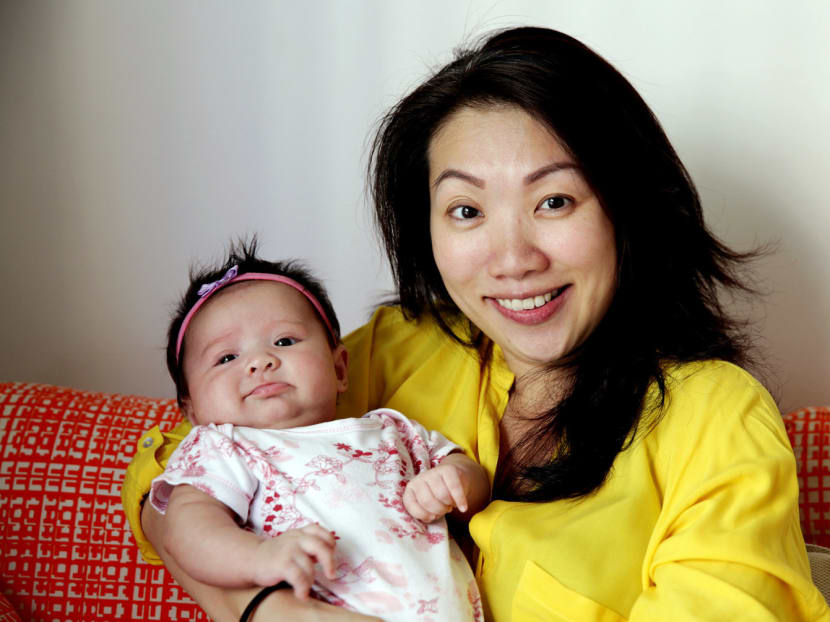She sourced for donated milk online
Having successfully breastfed her third child, 39-year-old business owner Fiona Grier was confident of doing the same for her fourth child, Ciara, when she was born two months ago.

Determined not to introduce formula so early, Mrs Grier turned to an online milk-sharing platform known as Human Milk 4 Human Babies (HM4HB) Singapore to look for donated milk to feed her hungry baby, Ciara.
Having successfully breastfed her third child, 39-year-old business owner Fiona Grier was confident of doing the same for her fourth child, Ciara, when she was born two months ago.
But she was not producing breast milk after a week due to post-childbirth complications from retained placenta tissue. Hormones responsible for breast milk production do not kick in when any part of the placenta remains in the body.
Determined not to introduce formula so early, Mrs Grier turned to an online milk-sharing platform known as Human Milk 4 Human Babies (HM4HB) Singapore to look for donated milk to feed her hungry baby. Two mothers responded to her request and Ciara was fed donated breast milk for four to five days.
“Even with medications to boost my milk supply, I only produced 1 to 2ml of milk. It was demoralising. Human breast milk is my first choice of food for my baby because I wanted to keep her gut flora as ‘virgin’ as possible to prevent risk of allergies later in life,” she said.
The milk-sharing practice, however, is not encouraged by healthcare professionals here.
“Donor milk from formal sources is the best option as proper screening is a requirement, and it is pasteurised. However, this option is not available in Singapore. Knowing that your donor leads a healthy lifestyle does not ensure that the milk will be safe,” said Ms Wong Lai Ying, a lactation consultant at NUH Women’s Centre.
As breast milk is a bodily fluid, diseases such as HIV and Hepatitis B can be transmitted through it, said senior lactation and parentcraft consultant Dr Wong Boh Boi from Thomson Medical Centre. Contamination may also occur during collection, storage and transportation of breast milk.
Mrs Grier said using donor milk was a natural alternative as she had also donated her excess breast milk to other mothers in need while breastfeeding her third child. To allay her husband’s concerns and reduce any health risks, she asked the donors detailed questions about their health and previous vaccinations.
She managed to increase her milk supply shortly after removing the remaining placenta tissue, and is currently nursing Ciara exclusively. With four children aged two months to 13 years old, Mrs Grier said she has noticed a shift in mindset on breastfeeding over the past decade.
“Over the last 10 years, I feel there has been an increasing amount of pressure on mothers to breastfeed. We all know that breastfeeding is best but struggling mothers need to remember that breastfeeding is not a one-man show; ultimately, it is a relationship between the mother and child,” she said.






